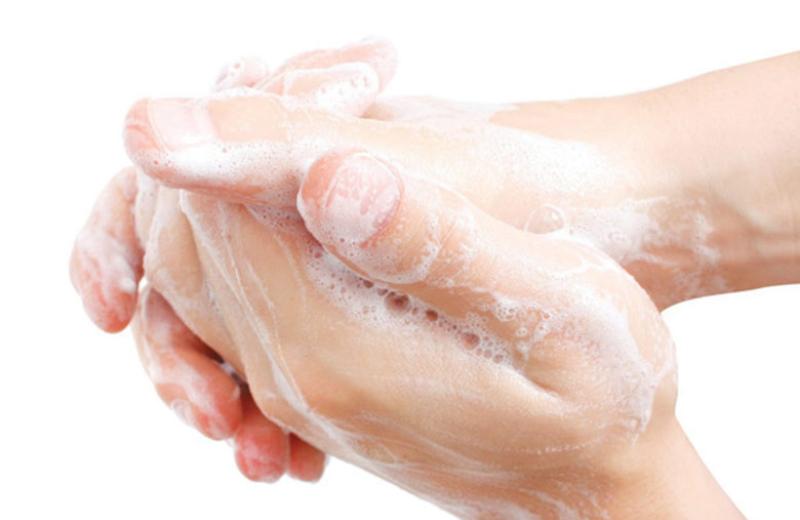Flu season is once again in full force. Influenza, or the flu, is a virus that causes fever, cough, headache, sore muscles or joints, fatigue or weakness, and a sore throat.
It’s spread through contact and fluid transfer, including breathing in the virus if someone sneezes or coughs, and doesn’t cover their mouth. It can also be shared by dirty surfaces and dirty hands. The most effective and easiest way to prevent the spread of the flu is to have good hand hygiene.
There are two ways to keep your hands clean. The first is just to… wash your hands. The soap and friction together wash the germs down the drain.
Hand-washing tips
- Use regular soap, not antibacterial soap. Antibacterial soap can help create antibiotic-resistant germs.
- After soaping your hands, sing a song like Happy Birthday (twice) or Twinkle Twinkle, Little Star while you rub your hands together. (Dancing in place and harmonizing with the person at the neighbouring sink: optional!) Both songs give you the ideal scrub time of about 20 seconds.
- Make sure to wash the back of your hands and in between your fingers.
- Rinse well and gently pat your hands dry.
- To stop your hands from drying out, use lotions as needed.
The second way to keep your hands clean is to use hand sanitizer. Things to consider:
- The sanitizer should be made up of at least 60 per cent alcohol.
- It’s convenient to use and you can keep it in your car or purse.
- Use enough to keep your hands “wet” for 20 seconds. Rub your hands until it evaporates.
- If your hands are visibly dirty, don’t use hand sanitizer. Instead, wash your hands. If this isn’t an option, use a wipe or towelette to get rid of dirt, then use hand sanitizer.
When should you clean your hands?
- Before and after eating.
- Before and after feeding someone else.
- Before preparing food and after handling raw meat.
- Before and after caring for someone who’s sick or injured.
- Before inserting and removing contact lenses.
- Before flossing your teeth.
- After using the washroom or helping someone use the washroom.
- After sneezing, coughing or using a tissue.
- After handling pets or animal waste.
- After cleaning.
- After handling garbage.
80 per cent of common infections, including the flu, are spread by our hands. Keep others safe, and keep yourself safe – clean your hands!














Comments